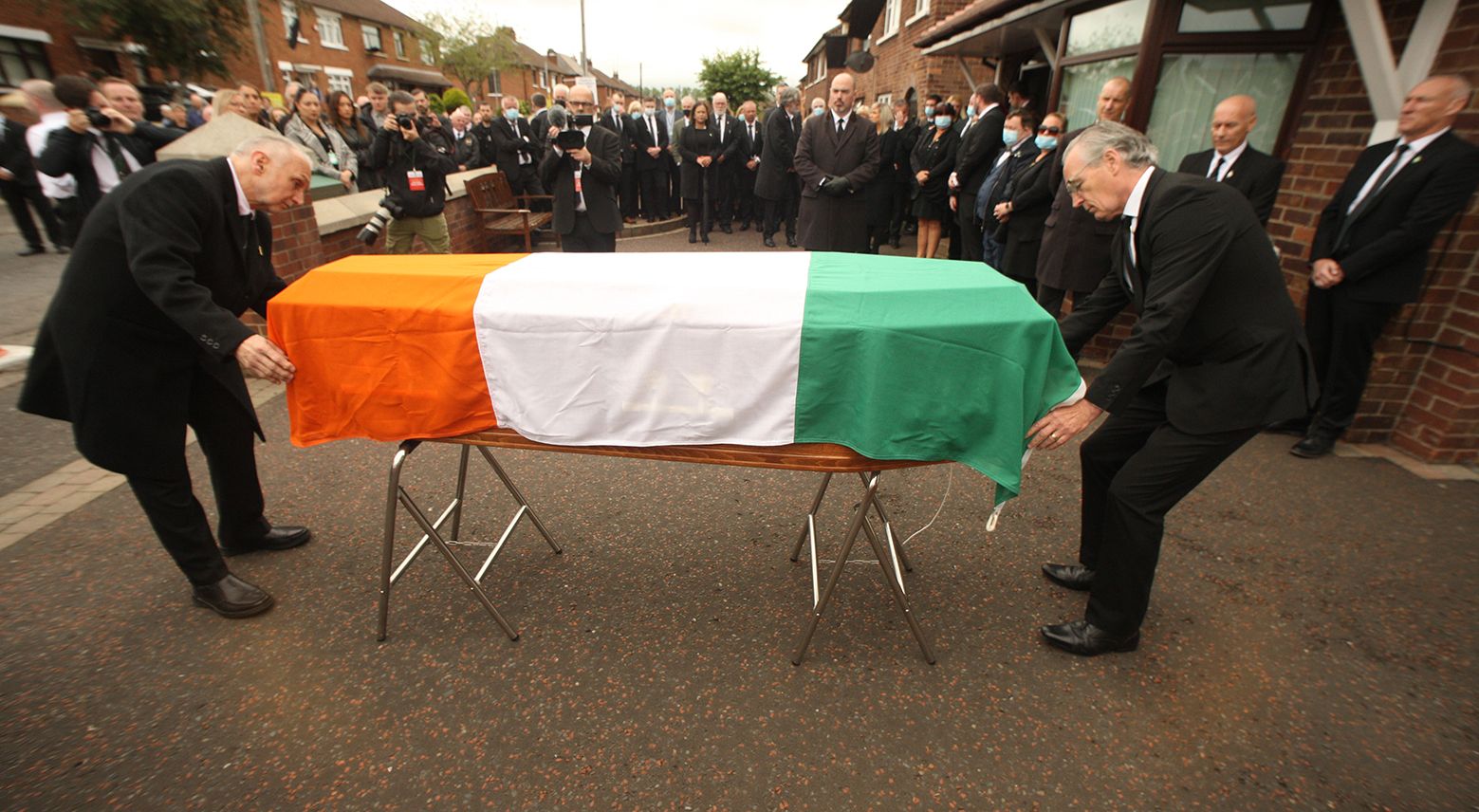THE ruling by the Public Prosecution Service that no charges are to brought against any of the senior Sinn Féin members who attended the funeral of Bobby Storey last June has prompted an entirely predictable wave of fury and indignation from the party’s political opponents.
The first thing to be said – or, rather, repeated – is that in the planning and staging of the funeral, Sinn Féin made serious mistakes for which they have been rightly hauled over the coals. But in the nearly ten months since the funeral took place, and while Covid has taken its awful toll, we’ve seen repeated instances of bad behaviour and irresponsible words. So why is it that the Storey funeral has remained at the top of the news agenda?
The first and most obvious answer is that it commands readers, listeners and clicks. In other words, it’s a viscerally divisive issue which drives people apart and which is ripe for exploitation by the more sensationalist and irresponsible elements of the local media.
But when we delve deeper, we can see that the Bobby Storey funeral some time ago stopped being about public health and responsibility in office. The fact of the matter is that the funeral has become a lightning conductor for the impotent and directionless anger of people who struggle to accept a society in which they no longer get everything that they want.
It was right that the police should have looked into events at the funeral and it was right that they did their job, working closely with the funeral organisers, and presented a file to the PPS. On Tuesday the PPS presented nine pages of evidence on why a prosecution would have stood little chance of success. It is a detailed summary of what drove the decision – and it shows fairly conclusively that had a prosecution been brought in order to fend off the hysterical reaction that we’ve seen, the case would have been dismantled in a morning by a junior barrister.
Which is why the unionist parties have switched their attention from the Sinn Féin figures who attended the funeral to the police who prepared the file – and to the PPS who took the decision not to act upon it.
DUP leader and First Minister Arlene swiftly called for the resignation of Chief Constable Simon Byrne – a demand equally swiftly rejected by the PSNI boss. UUP leader Steve Aiken predictably followed suit on Thursday. That switch from personalities to process is an indicator of frustration rather than conviction.
And sure enough, after a dignified censure debate in the Assembly during which Sinn Féin took its well-deserved criticism, a Policing Board meeting went off without the fireworks that the DUP had doubtless hoped would strengthen their position.
A car-wreck interview on the subject that Steve Aiken gave the BBC this morning (Friday) about his decision to withdraw support for the Chief Constable threw the unionist strategy into further turmoil.
The policing of the pandemic has proved to be a nightmare for forces all over the world, and we have not been slow to point out the mistakes that this still-new Chief Constable has made, not only in relation to Covid, but on a number of other issues too.
That job is going to be made absolutely impossible if the public heeds the entirely cynical claims by some politicians and commentators that the PPS decision means the end of lockdown. That argument is another vivid illustration that, for too many people, this issue has little to do with public health and a lot to do with political opportunism.







